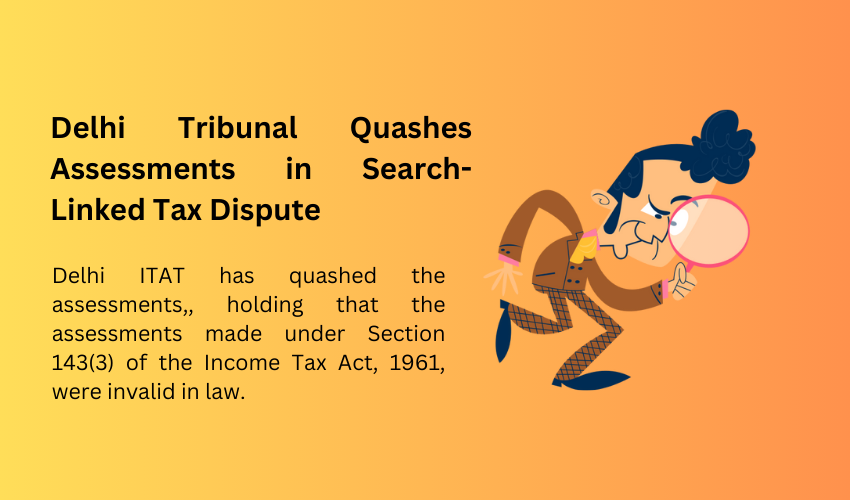New Delhi, February 6, 2025 – In a significant ruling, the Delhi Bench of the Income Tax Appellate Tribunal (ITAT) has quashed the assessments against multiple assessees, holding that the assessments made under Section 143(3) of the Income Tax Act, 1961, were invalid in law. The case pertains to the appeals filed against the orders of the Commissioner of Income Tax (Appeals)-30, New Delhi, dated January 30, 2024, for the assessment year 2021-22.

The appeals were filed on common grounds, with assessees contending that the CIT(A) had upheld the additions made by the Assessing Officer (AO) without considering legal precedents, facts, and submissions. A key argument in the case was that the assessment was based on loose papers found during a search on a third party, raising questions on the applicability of Section 153C of the Act.
The tribunal admitted an additional legal ground raised by the assessees, challenging the validity of the assessment under Section 143(3). The assessees argued that since the assessments stemmed from materials found in a search conducted on another party, the proceedings should have been initiated under Section 153C instead. Relying on the Supreme Court’s judgments in NTPC Ltd. vs. CIT (229 ITR 383) and Jute Corporation of India Ltd. vs. CIT (187 ITR 688), the tribunal held that the additional ground was purely legal and went to the root of the assessment’s validity.
A crucial development in the case was the reference to a similar matter involving co-owner Arti Dhall, in which the Delhi Tribunal had ruled in favor of the assessee and quashed the assessment in Arti Dhall vs. DCIT (ITA No. 1239/Del/2024, AY 2021-22). The present appeals, which involved identical circumstances, were adjudicated accordingly.
The ITAT observed that the Assessing Officer, despite recording satisfaction under Section 153C, proceeded with regular assessment under Section 143(3), contrary to legal provisions. The tribunal further noted that for a valid assessment under Section 153C, a notice must be issued to the assessee, which was not done in this case.
Given these findings, the tribunal held that the assessments were void ab initio and ordered their annulment.
This ruling reinforces the principle that assessments based on search materials found with third parties must strictly adhere to the procedures under Section 153C. The decision provides relief to the assessees while also underscoring the importance of procedural compliance in search-related tax assessments.